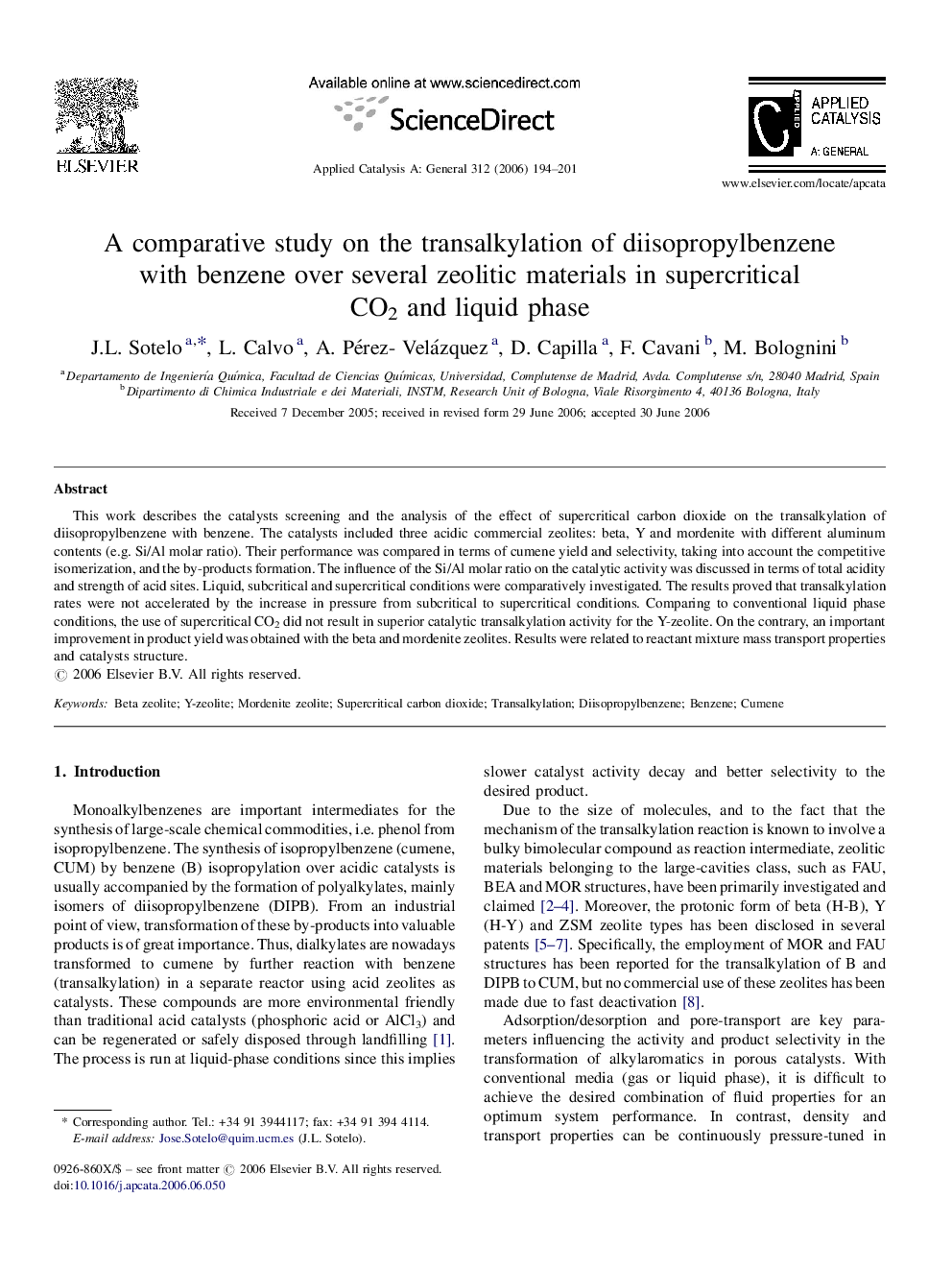| Article ID | Journal | Published Year | Pages | File Type |
|---|---|---|---|---|
| 44612 | Applied Catalysis A: General | 2006 | 8 Pages |
This work describes the catalysts screening and the analysis of the effect of supercritical carbon dioxide on the transalkylation of diisopropylbenzene with benzene. The catalysts included three acidic commercial zeolites: beta, Y and mordenite with different aluminum contents (e.g. Si/Al molar ratio). Their performance was compared in terms of cumene yield and selectivity, taking into account the competitive isomerization, and the by-products formation. The influence of the Si/Al molar ratio on the catalytic activity was discussed in terms of total acidity and strength of acid sites. Liquid, subcritical and supercritical conditions were comparatively investigated. The results proved that transalkylation rates were not accelerated by the increase in pressure from subcritical to supercritical conditions. Comparing to conventional liquid phase conditions, the use of supercritical CO2 did not result in superior catalytic transalkylation activity for the Y-zeolite. On the contrary, an important improvement in product yield was obtained with the beta and mordenite zeolites. Results were related to reactant mixture mass transport properties and catalysts structure.
